Tune Tag #99 with NickS (WA), Pt. 4: Mott the Hoople, Carla Thomas, Barenaked Ladies, Shaun Cassidy, Brian Wilson, Janis Ian, Willie Nelson, Otis Redding, Andrew Gold
With the recent losses of Brian Wilson and Mick Ralphs, this Tune Tag happily and gratefully honors the musical legacies of these influential artists, as well as the others who share this space today!
Not the way I usually answer the door…..but,
Welcome back to Tune Tag, of Earnestness is Underrated!

This is Nick’s 4th time joining us for Tune Tag! Here’s his most recent, from May of 2024, Tune Tag #40:
Nick describes himself as “a middle-aged geek [in NW Washington state]; I have interests in politics, and am enjoying reviving my interest in music. I have been interested in science fiction and role-playing games, but at this point I feel mostly nostalgia for them.”
Last week, we enjoyed the Tune Taggin’ company of of Needle in a Substack:
Next week, we celebrate the century mark with Tune Tag #100 with
of ! It’ll be a week of Tune Tag celebration and surprises!Meanwhile, thanks to David Paich and Toto, this Tune Tag #99 has an opening theme!
Nick’s song #1 sent to Brad: Janis Ian & Willie Nelson, “Memphis,” 2000

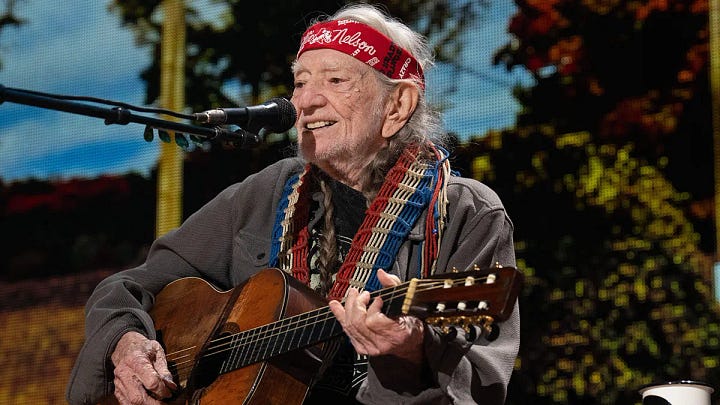
Nick’s rationale: Ah, the anxiety of the blank page! I want to have a good starting point. I’m fairly sure this was the song I have listened to more often than any other in the past year. There were a couple of months when I was listening to it over and over again. It just resets my sense of time. The opening is a little quiet and spare, but once Willie Nelson comes in, I am absorbed in the music and everything starts moving a little more slowly and I feel more patient.
Normally, I tend to be very lyrics-focused in my appreciation of songs, but in this case I just respond strongly to the music and the way their voices combine. In the video description, Janis Ian writes, “I wrote this song with Deana Carter for my album, God and the FBI [Windham Hill Records, 2000, produced by Ian, John Jennings, and Jim Cregan].
“Everyone said Willie would never record it with me, but we persisted and sure enough, one day the invitation came - come on down to Pedernales and record it in his studio! Chet Atkins played lead, we sang, and it was an unbelievably wonderful experience.” The performance feels happy, and it gives Brad a lot of options for his choice.
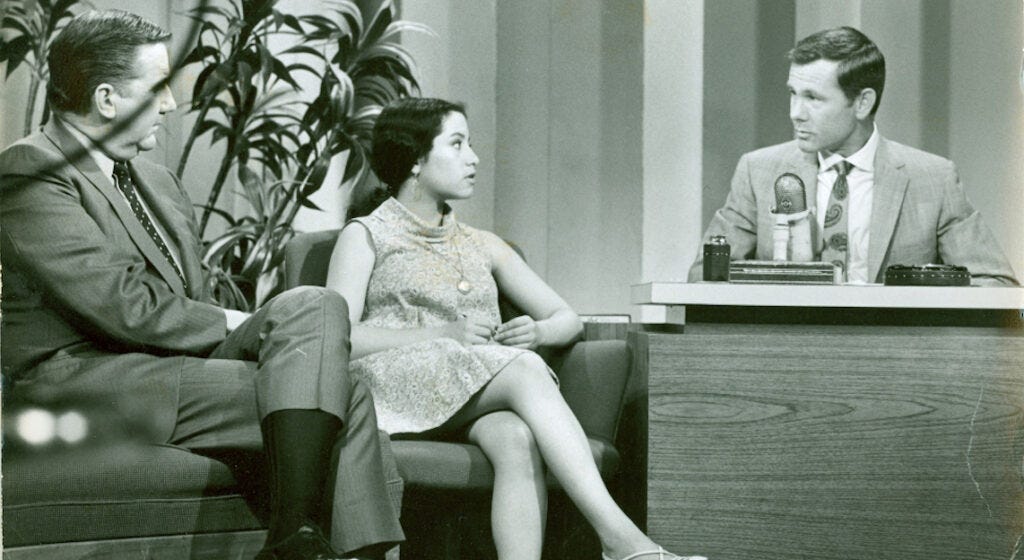
Brad’s song #1 sent to Nick: Mott the Hoople, “All the Way From Memphis,” 1973
Nick’s response: What a performance! It’s a completely different vibe than my opening selection, but so much fun. I assume Brad is matching the word “Memphis” in the title (and there are a lot of songs that mention Memphis)!
There are a couple of different ways I could go from here. I tried to find another song which tells a story about a musical instrument, but decided to stick with “Memphis” for my next song:
Nick’s song #2: Otis Redding & Carla Thomas, “Tramp,” 1968
Brad’s response: “All the way from Memphis,” indeed! Stax o’ wax! “Tramp”: a song written by Lowell Fulson and Jimmy McCracklin. Lowell Fulsom (as he was, at times, contractually known, with the “m”) was the first to record “Tramp,” as he did in 1966. The Redding/Thomas cover came the following year. Both charted.
Nick’s rationale: I highly recommend the documentary Respect Yourself: The Stax Records Story (shown above), which highlights the way that the label grew out of the Memphis music scene, and the ways in which the history of Stax is tied to the city.
This track pairs Otis Redding (the biggest star) with Carla Thomas, “queen of Memphis Soul.” Backed by the Stax house band, Booker T. & the MGs and The Memphis Horns, it was also the final album recorded by Otis Redding before his December 1967 death.
I’ve known this song for a long time. Listening to it now, thinking about someone hearing it for the first time, I can hear the ways in which the production shows its era (the vocal levels aren’t consistent) but the energy is great, and they sound like they’re really having fun!
Part of what makes it work so well is just how unwounded Otis Redding sounds as Carla Thomas teases him. From the opening in which he responds to being told that he dresses badly with, “Well, I tell you one dog-gone thing / It makes me feel good to know one thing / I know I’m a lover,” he is a man completely comfortable with himself.
From their 2003 Mescalero album, ZZ Top works out with the Texas “Tramp”:
Brad’s song #2: Shaun Cassidy, “Rebel Rebel,” 1980
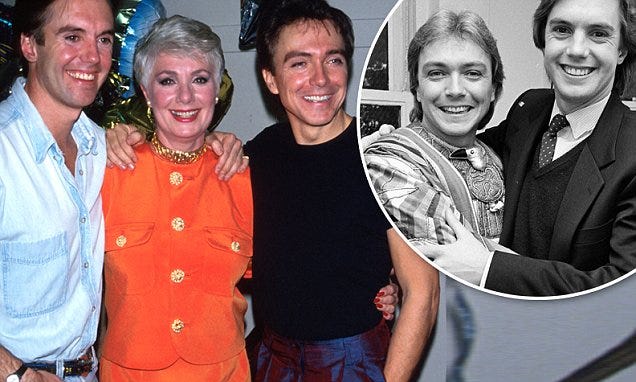
Nick’s response: Great choice; another song which highlights the word “tramp” (“hot tramp, I love you so”), though with a different meaning. The question is why Brad chose this specific version. This was also on Shaun Cassidy’s final studio album [Wasp, produced by Todd Rundgren], but that seems like a fairly grim connection to make. Then, a couple of days later I realized there was a much better connection: Carla Thomas was a child star, performing as part of a group of 10 and releasing her first record as a teen. Nicely done, Brad, nicely done.
Incidentally, Janis Ian was also a child star (she says, “I had my first hit when I was 14 with ‘Society’s Child’. . . in the words of one critic I was, “a washed up has-been”). One effect of that is that she is 18 years younger than Willie Nelson, who released his first album only 5 years before she did . . .
Musically, this is a good cover, but not exciting. So many of the selections this week have a palpable pleasure in making music and that is not my experience of this track.
Brad’s reply: Bay City Rollers recorded a “Rebel Rebel” cover that was produced by Bowie producer, Harry Maslin (who co-produced Bowie’s Young Americans and Station to Station albums, mid-’70s).
And, fellow Substack scribe,
, recorded a cover for her 1993 Traffic From Paradise album. Here’s a live version on a mid-’90s Jay Leno Tonight Show telecast, with Brian Setzer (Stray Cats, Brian Setzer Orchestra) on guitar, and Syd Straw on backing vocals; both were featured on Rickie Lee’s album:
Nick’s song #3: Barenaked Ladies, “What A Good Boy,” 1993
Brad’s response: From a “rebel” to a good boy?
Nick’s rationale: A few months ago someone on Substack asked, “What’s an album that you listened to over and over again when you were a teenager?” I was amused to remember that, for me, the clear answer was Gordon, the 1992 debut by the Barenaked Ladies. It was released when I was in high school.
It didn’t get much attention in the States immediately, but I had a family friend who listened to a lot of Canadian radio who recommended it. I loved the mix of serious and funny, and got several of my friends into it as well, which is, really, one of the few times in my life that I have been listening to the same music as my friends at the same time!
I selected this song riffing off the line in “Rebel Rebel”: “You’ve got your mother in a whirl, ‘cause she’s / Not sure if you’re a boy or a girl.” I was thinking about songs about gendered expectations. As I was turning that over, I immediately remembered some great posts I’ve seen on Substack:
Rowan Davies’ article about Boy George and George Michael (“Every British person I know can tell a story about it; one of my friends remembers her dad shouting at the TV. Because whatever else people saw, the thing that we all noticed was that it wasn’t entirely clear whether Boy George was a man or a woman.”).
Songs That Saved Your Life on “Androgynous” (“The inspiration for 1984’s "Androgynous" sprang from a drunken night out between Westerberg and R.E.M. guitarist Peter Buck. The pair decided it would be a laugh to don dresses and gaudy makeup and hit the bars. In the resulting tense altercation with the locals, Westerberg was called “androgynous” among other things. Westerberg had never heard the term and had to later look it up.“)…and, most ambitious, Cole Haddon on "I Want To Break Free" (“I still recall a teenaged male neighbor popping into my parents’ house to use the toilet after a backyard whiffle ball game. He saw I had a poster of Harrison Ford on my wall, which he felt obligated to comment on. I needed more girls on display, he gently advised me.”).
I mention all of this both to recommend them as worth reading, and because it’s interesting to see the shift over time: David Bowie presents the Rebel character as exciting, but there’s also a sense that it’s dangerous to be outside the bounds of “normal behavior.”
The two ‘80s songs above are more from the perspective of, “I’m the person who doesn’t fit gender norms; see me someone worthy of empathy.” In the Barenaked Ladies’ song (1992), the singer is just a guy trying to figure out how to live in the world and manage expectations, including gender.
Listening to it at the time, the part of the song which hit hardest for me was the opening verse (repeated at the close) which talks about how being a good boy means being smart and strong, while being a good girl means being smart and pretty and, “We've got these chains that hang around our necks / People want to strangle us with them before we take our / first breath.”
It captures the idea that those expectations are gendered, but everyone struggles with the gap between what the world thinks we should be and our own experience and sense of self. Listening to it now, I am curious what Steven Page means when he sings, “This name is the hairshirt I wear / And this hairshirt is woven from your brown hair;” I would be curious if any readers want to offer an interpretation of that line.
One final note, on this topic: Thinking about the differences between the ‘70s and 2000s, I remember this scene from the documentary, Every Little Step (about a revival of the 1975 Michael Bennett stage musical, A Chorus Line):
The movie shows the exhausting process of auditions, and then it captures a moment in which Jason Tam achieves what everyone aspires to in an audition — capturing the room in a few minutes with his performance of a monologue from the perspective of a younger gay dancer whose parents never approved or understood his interest.
It’s an amazing moment and the documentary follows it with a short clip of Sammy Williams, who originated the role on Broadway, which is also powerful, and more angry. It conveys the sense that taking that path in the ‘70s meant being more isolated and with fewer opportunities.
Brad’s song #3: Andrew Gold, “Lonely Boy,” 1976
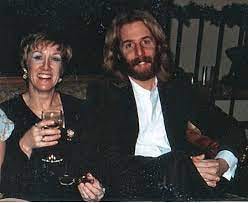
Video mash-up of various live footage of Andrew singing the song, with the studio album track as the audio; Peter Asher, producer (Asylum Records):
Nick’s response: What a nice match. The titles connect as being about a boy, and it’s another song about someone struggling to figure out what’s happened to their life (in this case someone who’s never adjusted to having a sister). The mood of the song could feel sour, but it’s lifted by the music and an excellent band.
Brad’s rationale: “Lonely Boy”s tale o’ the tape: It is written in the key of A major with a tempo of 122 BPM. The song starts with piano accompaniment, which first seems to be on beat, but then when the drums join in, it’s exposed to be 1/2-a-beat off.
Andrew’s daughter talks about “Lonely Boy” and whether the song was autobiographical and other behind-the-scenes tidbits!👇
Foo Fighters’ Dave Grohl on Andrew Gold and early radio influences:
Well, if you insist, Dave….here we go:
Nick’s song #4: Elton John, “Rocket Man,” 1972, Live
Brad’s response: The live debut, apparently, of “Rocket Man.” Unless there’s a Royal Festival Hall connection here, I’m at a loss to seeing what connects this live Elton clip with Gold’s ‘76 studio track of “Lonely Boy” (unless the “Rocket Man” is “lonely out in space”?). Hmmmm…..
Nick, in an aside to me via Notes on Substack: “I’m picking this (specifically live version) because it feels like a good way to end the entire sequence, as much as a specific response to “Lonely Boy,” but I do have a clear tag between the two songs.”
Nick’s rationale: We’ve had quite a range of songs this week, but I realized Brad’s been fairly consistent. The years in which his songs (or the original) were released are, in order, 1973, 1974, and 1976. I’ve picked songs from the ‘60s, ‘90s, and 2000. I’m a fan of ‘70s music, and I can’t let Brad have the decade to himself! For my final song of the week, I wanted something ‘70s, which would connect to the entire round, not only “Lonely Boy.”
I’ve always felt slightly resistant to “Rocket Man.” It’s undoubtedly an industrial-strength earworm and a well-crafted song, but there’s something almost too slick…I didn’t trust it. I’m open to either people who love it or find it kitschy.
Finding this live performance helped me get past that. It’s from a concert prior to the Honky Chateau album release. Nobody in the audience has heard the song before and there’s something really appealing about how Elton John clearly has confidence, but he also has a very human sense of, “I hope they like it.” He gives it a little extra just to make sure that the audience can understand and follow the song, and that little bit makes it feel genuine.
This obviously plays off the glam rock elements of Brad’s first two selections, and Elton John was the same age as Andrew Bird — both 25 (incidentally Shaun Cassidy and Steven Page were both 22 at the time of those recordings).
Brad: “Rocket Man” Minute: As Elton, generally, wrote the music for Bernie Taupin’s lyrics, I always wondered if Elton ever knew the original inspirations behind Taupin’s lyrics:
Brad’s song #4: Brian Wilson, “Good Vibrations,” Live, 2004
Nick’s response: What a gift; Brad also picked something that feels like a wrap-up of the entire Tune Tag. Both it and “Rocket Man” are performances at the Royal Festival Hall which debuted a new album/tour — which is a pretty remarkable Tag by itself. In addition, I don’t know if Brad knows this, but the Barenaked Ladies album has a song called “Brian Wilson,” which contains the lyrics, “Just listenin’ and re-listenin’ / To Smiley Smile.”
Finally, I commented earlier that many of the songs this week have a palpable pleasure in making music, and there’s something touching about knowing the ups and downs Brian Wilson had in his life, and to see him enjoying performing and enjoying the audience.
Brad’s rationale: London’s Royal Festival Hall, 32 years later, with two of rock’s legendary singer/songwriters/keyboardists as our link. For Brian, this was the world premiere of his legendary, long-delayed SMiLE project, backed by friends and longtime cohorts, The Wondermints.
Wiki: When SMiLE completed its debut, Wilson received a ten-minute standing ovation before he was able to invite lyricist, Van Dyke Parks, who was in tears, onstage (watch for brief glimpses of Paul McCartney and George Martin in the rapturous audience during the ovation).
According to keyboardist, Darian Sahanaja, “the standing ovation was indescribable. I had never seen anything like it as an audience member or a performer. They wouldn’t let him speak or say anything. I stepped up to him and said, ‘Uh, Brian...I think they like SMiLE.’” Sahanaja reported that, after the show, Wilson rocked back and forth backstage—out of relief that he had finally conquered his fear of Smile—exclaiming “Darian! Darian! We did it! We did it!”
…and, our closing theme to #99, courtesy of 45-year-old German jazz guitarist, Torsten Goods:










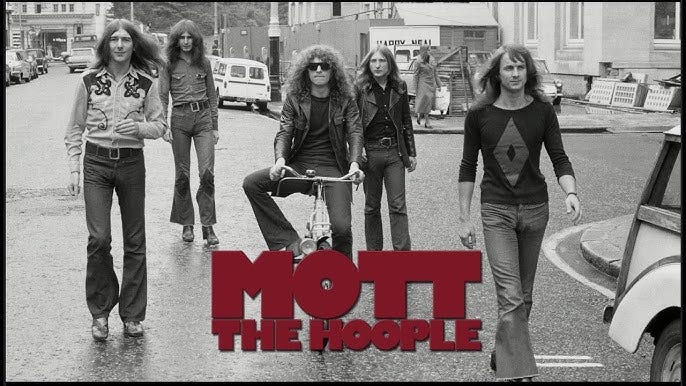
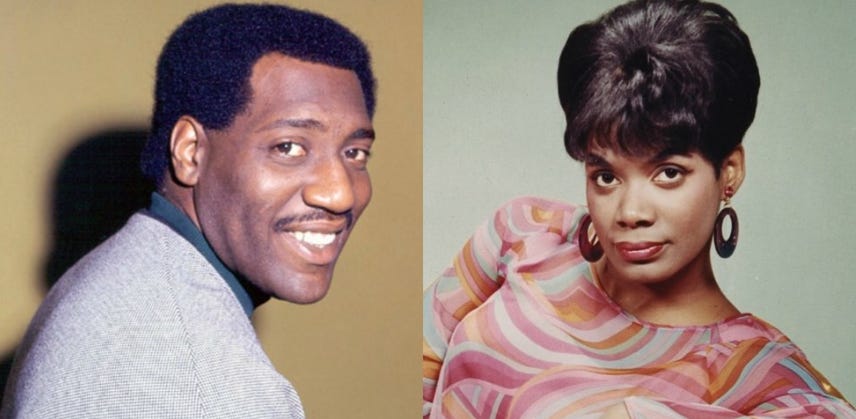



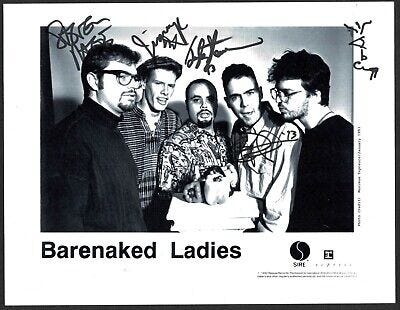
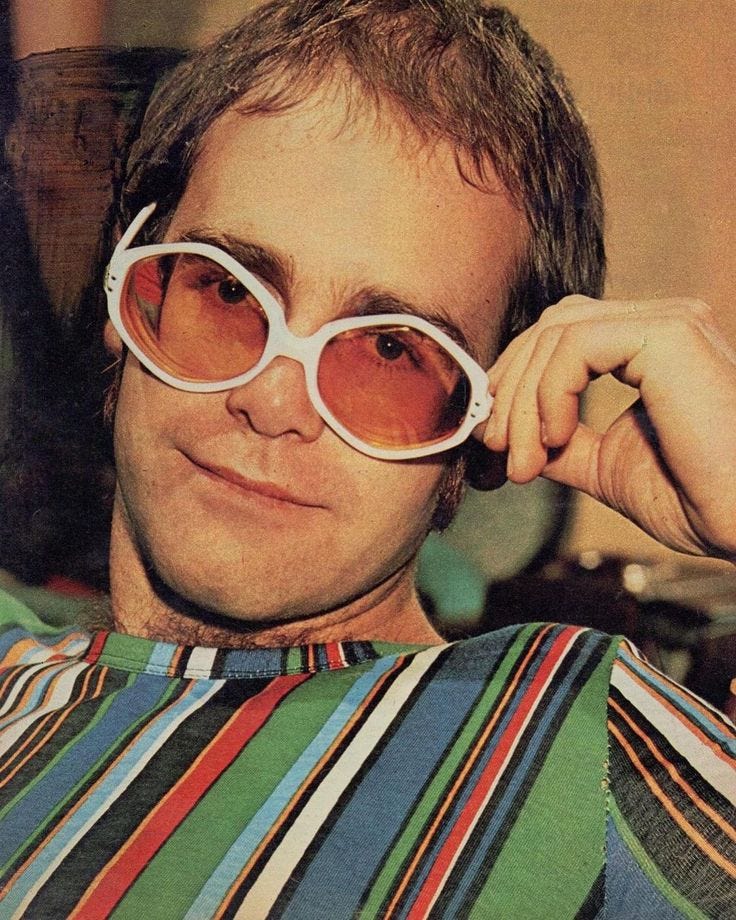

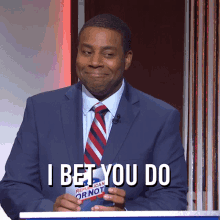
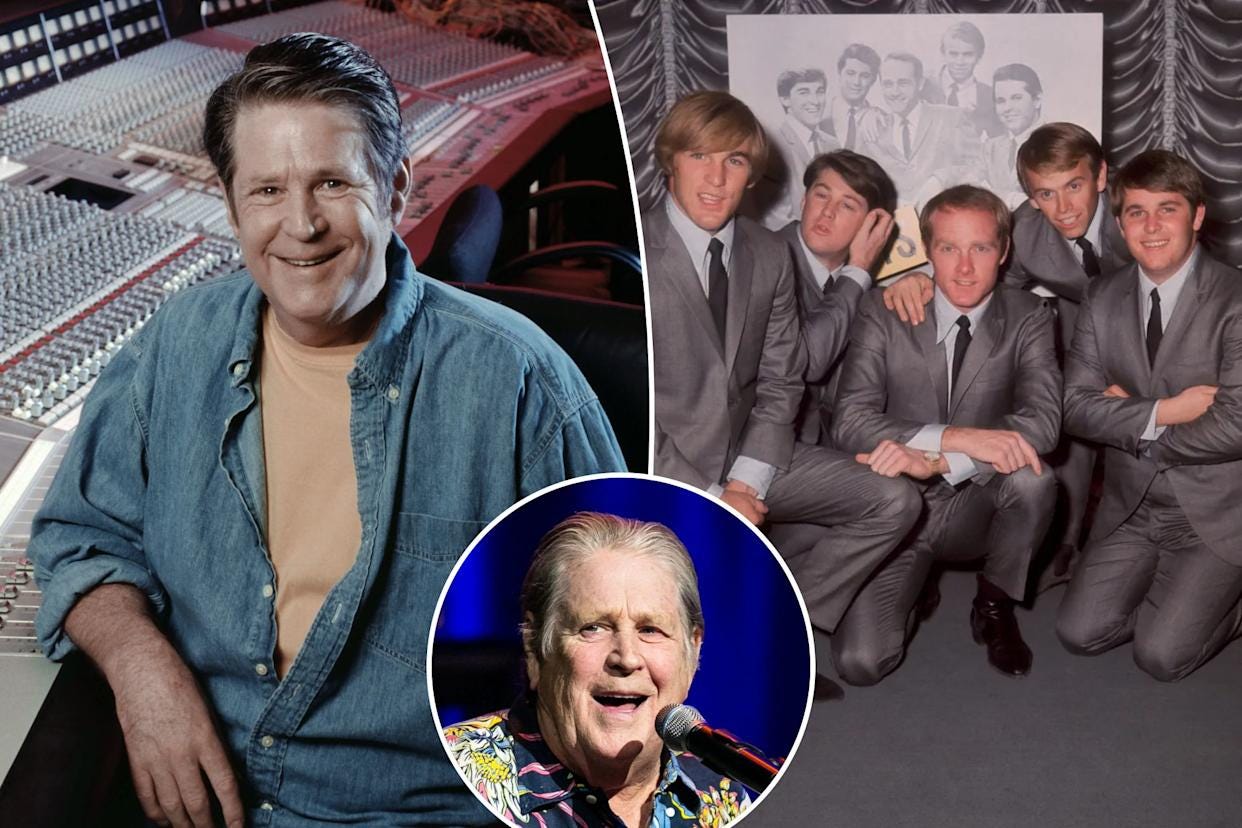

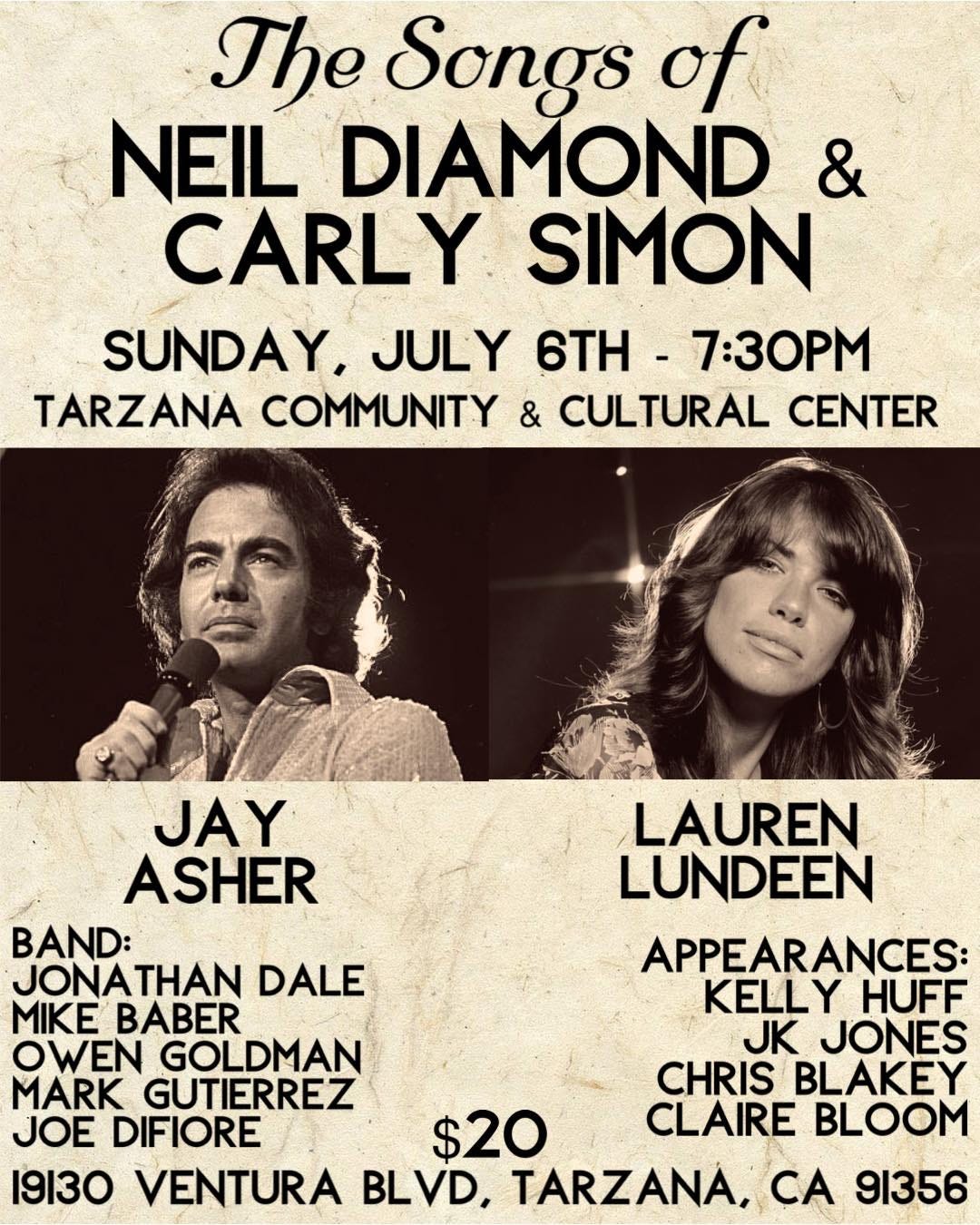

Thanks a bunch, Brad; that was really fun. The thing that really makes me happy this week is that you picked songs that I never would have thought of, but the whole episode feels like it reflects some of the elements that I most enjoy in music. I mention the "palpable pleasure in making music" which I hear in so many of the tracks and also the balance between music being personal and public. There are a lot of people this week who, in one way or another, and wearing their heart on their sleeve in their music.
I appreciate Brad leaving in my wall-of-text in the middle. I hope that doesn't scare people off, but I thought it was and interesting topic to explore.
Brad, you are correct that there's a thematic connection between "lonely boy" and "rocket man" around loneliness but I'm curious to get a ruling from the judges about whether matching the age of the two of them counts as a more specific connection.
Speaking of tags, I forgot to mention that Brad's final selection tags *three* of my songs. I realized after sending the notes that "Tramp" and "Good Vibrations" were both released in 1967.
I feel like Brad deserves a standing ovation for that one.
RIP Brian Willson and Mick Ralphs.
One other note, this post about Brian Wilson by Mark Blankenship fits really well with this Tune Tag; in that he writes well about how Brian Wilson addresses some of the themes of aging, adulthood, and responsibility which show up in some of the other songs: https://lostsongs.substack.com/p/when-i-grow-up-the-beach-boys-1964-review-brian-wilson